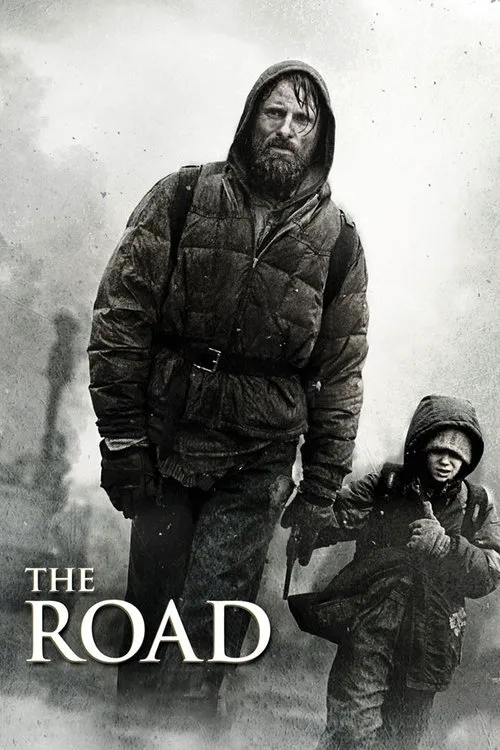The Road

Plot
In the post-apocalyptic world depicted in Cormac McCarthy's novel of the same name, The Road is a cinematic adaptation that brings to life the haunting and poignant tale of a father and son's desperate journey for survival. The film, directed by John Hillcoat, takes viewers on a visceral and emotional ride through a world ravaged by some cataclysmic event, where the very fabric of humanity is on the brink of collapse. The narrative revolves around the father, played by Viggo Mortensen, who is determined to protect his young son, Jack (played by Charlie Woollett), from the harsh realities of their surroundings. The two are on foot, their only companions the ash-filled wind and the eerie silence that pervades the devastated landscape. Their ultimate goal is to reach the southern regions, where the father hopes to find a haven, warmth, and possibly a new beginning. Throughout their perilous journey, the father and son encounter numerous obstacles that test their resolve and endurance. They scavenge for food, dodging roving gangs of marauders who prey on the weak and the vulnerable. They also stumble upon abandoned cars, ruins of buildings, and the skeletal remains of once-thriving communities, serving as poignant reminders of the world that once was. The landscape, too, is a character in its own right, with its desolate beauty and stark realism adding to the overall sense of desolation and hopelessness. One of the most striking aspects of The Road is its visual representation of the post-apocalyptic world. Hillcoat's cinematography, along with cinematographer Benoit Delhomme, captures the monochromatic palette of the landscape, with shades of gray, beige, and ash dominating the screen. This aesthetic choice serves to emphasize the bleakness and barrenness of the world, and highlights the theme of loss and decay. The relationship between the father and son is at the heart of the narrative, and is expertly portrayed by Mortensen and Woollett. Their bond is palpable, and their interactions are often charged with tension, warmth, and a deep-seated sense of love. The father's determination to protect his son becomes increasingly pronounced as the journey progresses, leading him to make difficult decisions that often put them at risk. As they encounter other survivors, they reveal a complex and multidimensional aspect of human nature. Some are hostile and aggressive, while others are kind and compassionate. A particularly striking encounter is with an elderly couple, who, despite the dire circumstances, cling to their humanity and maintain a sense of dignity and love for one another. Throughout the film, themes of hope, resilience, and the importance of human connection are interwoven with the brutal reality of survival. The father's memories of their pre-apocalyptic life serve as a reminder of the world that once was, and the possibility of rebuilding and restarting anew. However, the fragility of their existence is constantly underscored by the threat of violence and death, making every moment a delicate balance between hope and desperation. In the end, it is not the destination that gives The Road its depth and resonance, but the journey itself. The cinematic representation of this bleak and unforgiving world serves as a powerful metaphor for the human experience, reminding us of our fragility, our resilience, and our capacity for love and compassion in the face of unimaginable adversity.
Reviews
Recommendations




